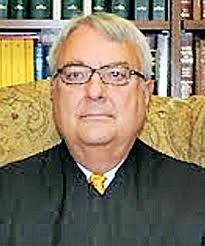As the current session of the Tennessee General Assembly heads toward its conclusion, either late this month or early in May (see cover story, “Nashville Gets Serious”), two questions of serious concern to the Memphis area are about to be revisited.
Up for reconsideration this week are the voucher bill, co-sponsored by state Senator Brian Kelsey (R-Germantown) and state Representative Harry Brooks (R-Knoxville), and a measure enabling de-annexation, sponsored by state Senator Bo Watson (R-Hixson) and state Representative Mike Carter (R-Ooltewah).
The voucher measure, a variant of which has been brought up unsuccessfully by Kelsey for years, may have its best prospects for passage yet — its odds improved by the fact that it is styled as a “pilot program” restricted to the Shelby County Schools district alone.

Brian Kelsey
That fact removes some of the onus from legislators elsewhere in the state who might be deterred by the prospect of immediate blowback affecting their own districts. In much the same manner, the way was cleared in 2012 for the Norris-Todd bill, which eliminated a freeze on new special school districts in Tennessee and allowed new suburban districts in Shelby County, when Norris-Todd was successfully revised to apply only to Shelby County.
The difference, and it could prove to be major, is that support for Norris-Todd was relatively stout in the major suburbs of Memphis, represented by several key legislators, notably state Senate Majority Leader Mark Norris of Collierville, the bill’s chief author, while a majority of Shelby County legislators, Republican and Democratic and from Memphis and as well as its suburbs, are on record as opposing vouchers.
And the Kelsey bill prompts doubts as to its ultimate constitutionality, inasmuch as it fails to qualify as a “private” bill — i.e., one supported by a county’s chief legislative body. That would be the Shelby County Commission, which voted unanimously in February to oppose the voucher measure.
In any case, the voucher bill, which has been hanging fire on the Senate side for a month awaiting action by the House, was placed on the calendar of the House Government Operations Committee last Thursday. Action was deferred until Wednesday of this week.
The Watson-Carter bill on de-annexation is essentially the same measure that was introduced last year, gaining quick passage in the House and getting immediate traction in the Senate, until an all-out resistance on the part of Memphis city officials, the city’s allies in other Tennessee cities, and the Greater Memphis Area Chamber of Commerce managed to get it postponed in the Senate State and Local Government Committee.
That reprisal was based on the understanding that Memphis deserved the option of proposing its own formula for de-annexation — one presumably kindlier than the Watson-Carter version, which provided a fairly easy means for any area annexed by a city since 1998 to hold a referendum to gain its independence. A hastily appointed city/county task force came up with a formula for “right-sizing” the city and allowing a relatively graceful exit of such hotbeds of de-annexation sentiment as South Cordova and Southwind-Windyke.
But the right-sizing plan envisioned that implementation would be postponed until 2021, a fact unsettling to local de-annexation activists. And, instead of promptly giving the plan an up-or-down vote, the city council has opted for a more deliberated response, allowing for a series of public meetings in the potentially affected areas and envisioning possible referenda in those areas later on.
Both those facts moved Carter and Watson to schedule new action on their bill, which was first reset for last Thursday’s calendar of the Senate State and Local Government Committee and then postponed for action by the committee on Tuesday of this week.
